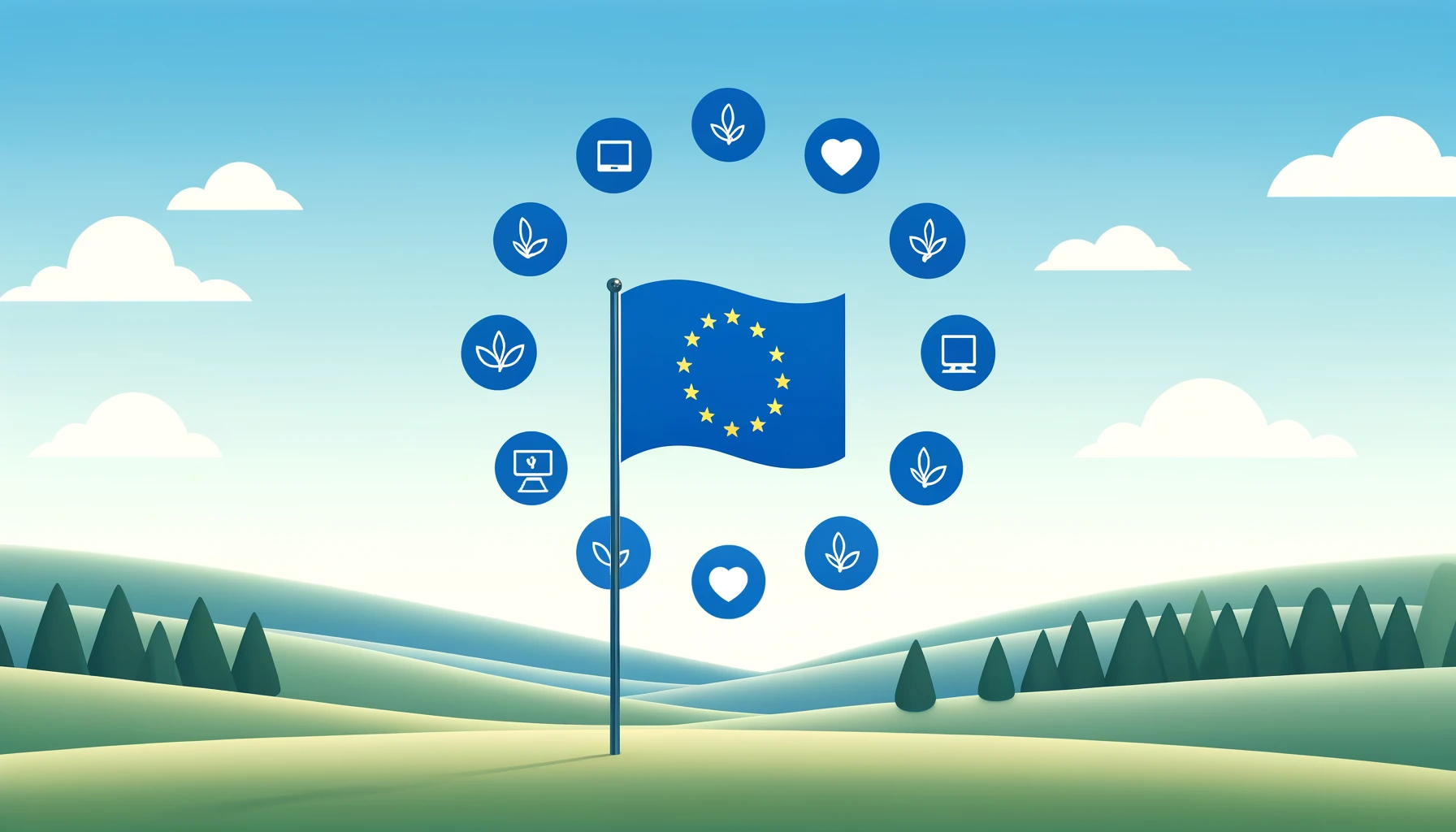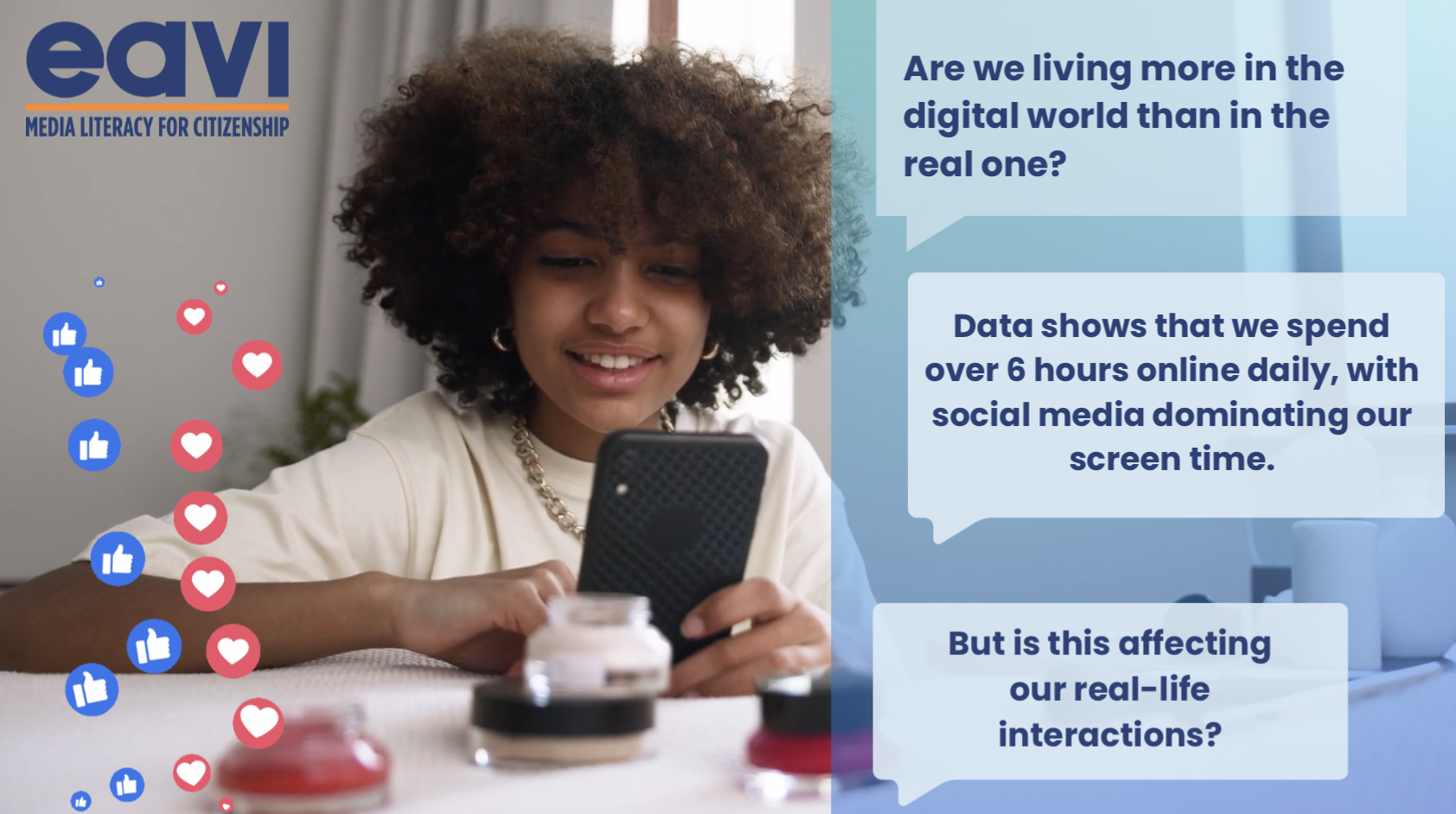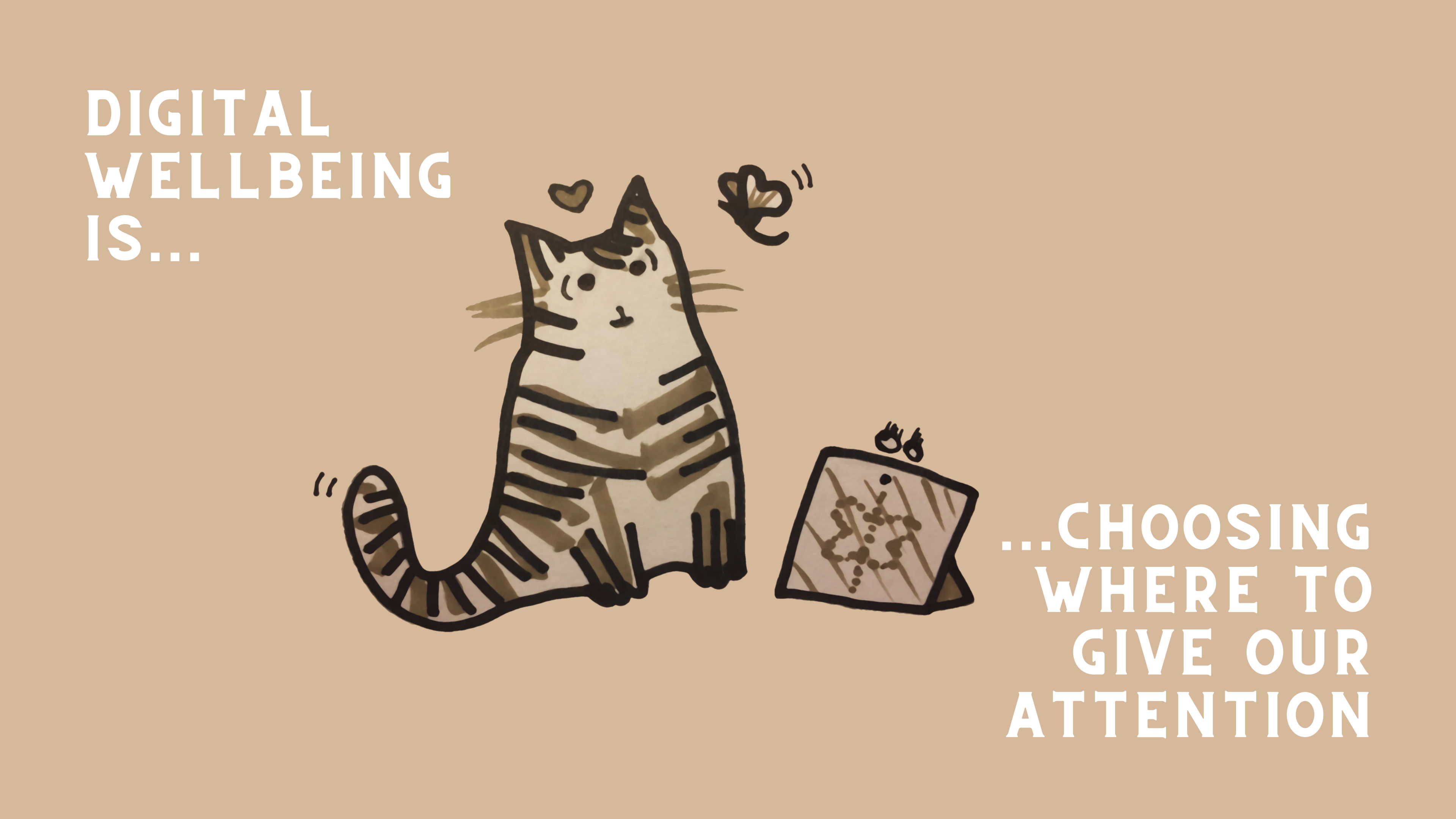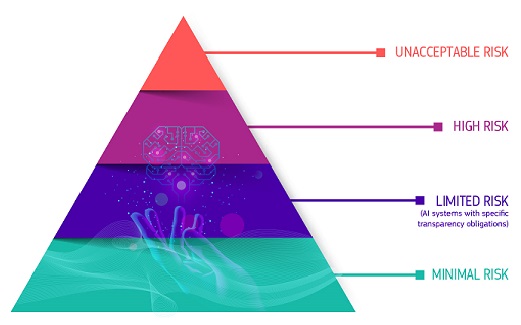
Digital well-being encompasses our online safety, managing our online time, our ability to critically assess the media we consume and becoming responsible and confident digital citizens. In this regard, the European Union is actively striving to enhance the digital environment to benefit all citizens of Europe. According to The Council of the EU and the European Council’s website, “our digital life needs to be safe, easy and respectful of basic freedoms”, and the EU is focusing on various policy areas to enable a digital future for Europe. The Council of Europe also incorporated Online Wellbeing as a component of digital citizenship in 2019.
Digital technologies are reshaping daily life, impacting communication, lifestyle, and employment. The EU is dedicated to ensuring that societies and economies are well-prepared for this digital era by establishing a secure digital environment that is inclusive and open to all. This involves fostering a digital transition that upholds EU principles, safeguards fundamental rights and security, and strengthens Europe’s control over its digital sovereignty.
The EU is currently focusing on several key policy areas to bring about digital transformation, including cybersecurity, digital services, artificial intelligence, and digital information exchange. For instance, The EU is developing the Cyber Resilience Act, which marks the first EU legislation to impose cybersecurity standards on internet-connected products. This initiative targets devices such as smart TVs, watches, and home cameras to enhance safety and safeguard EU businesses and consumers effectively.
In 2022, the European Commission published The Digital Competence Framework for Citizens (DigComp), emphasising safety in supporting well-being and health. This publication offers a comprehensive definition of digital competence. It consists of two main sections: the DigComp 2.2 framework, which includes over 250 new instances of knowledge, skills, and attitudes helping individuals confidently, critically, and safely interact with digital tools. It also covers emerging technologies such as artificial intelligence (AI). In DigComp, digital competence is structured around five core areas. These encompass information and data literacy, communication and collaboration, digital content creation, safety, and problem-solving. Under the competence area of “safety”, the competence is “protecting health and wellbeing” in digital environments. This competence includes avoiding health risks and protecting physical and psychological well-being while using digital devices, shielding yourself and others from potential dangers in digital areas, such as cyberbullying, and recognising digital tools promoting social well-being and inclusivity.
The Commission also published the European Framework for the Digital Competence of Educators (DigCompEdu) in 2017. At both international and national levels, various frameworks, self-assessment tools, and training programs have been developed to outline the aspects of digital competence for educators. These resources aim to assist educators in evaluating their skills, recognising areas for improvement, and accessing tailored training. This report introduces a unified European framework by examining and organising these tools. It is a scientifically sound framework that explains what digital skills educators need. Notably, it emphasises the significance of measures to ensure learners’ physical, psychological, and social well-being while using digital technologies. Furthermore, it empowers learners to manage risks and use digital devices safely and responsibly.
Moreover, the Council of the European Union published “Council Conclusions on Supporting Well-being in Digital Education” in 2022, highlighting the importance of promoting digital well-being in education and training contexts. It acknowledges the significant impact of digital technologies on learners’ and educators’ lives and stresses the need to address various challenges and risks associated with digital environments.
Furthermore, digital education experts advocate for a more comprehensive approach to digital skills, emphasising the need to bridge the online-offline divide and expand the concept of digital citizenship. They argue that digital literacy should encompass not only technical skills but also emotional intelligence, social support, and mental health awareness. A coalition of organisations, which includes Meta, the European Youth Forum, and other research and civil society organisations, proposes five pillars for digital citizenship: digital foundations, well-being, engagement, empowerment, and opportunities. They stress the importance of involving a broader range of actors, including families and educators, in promoting digital resilience and skills. The group suggests integrating digital citizenship education into school curricula to ensure that young people are equipped with the necessary skills before entering the digital world. In line with these arguments, the aforementioned EU initiatives and frameworks signify important progress towards promoting learners’ digital well-being.
–
References:
DigComp 2.2: The Digital Competence Framework for Citizens. European Commission, 2022.
A Digital Future for Europe. The Council of the EU and the European Council.
DigCompEdu: European framework for the digital competence of educators. European Commission, 2017.
“Expanded education central to digital wellbeing, says practitioner”. Molly Killeen, 2022.

Digital well-being encompasses our online safety, managing our online time, our ability to critically assess the media we consume and becoming responsible and confident digital citizens. In this regard, the European Union is actively striving to enhance the digital environment to benefit all citizens of Europe. According to The Council of the EU and the European Council’s website, “our digital life needs to be safe, easy and respectful of basic freedoms”, and the EU is focusing on various policy areas to enable a digital future for Europe. The Council of Europe also incorporated Online Wellbeing as a component of digital citizenship in 2019.
Digital technologies are reshaping daily life, impacting communication, lifestyle, and employment. The EU is dedicated to ensuring that societies and economies are well-prepared for this digital era by establishing a secure digital environment that is inclusive and open to all. This involves fostering a digital transition that upholds EU principles, safeguards fundamental rights and security, and strengthens Europe’s control over its digital sovereignty.
The EU is currently focusing on several key policy areas to bring about digital transformation, including cybersecurity, digital services, artificial intelligence, and digital information exchange. For instance, The EU is developing the Cyber Resilience Act, which marks the first EU legislation to impose cybersecurity standards on internet-connected products. This initiative targets devices such as smart TVs, watches, and home cameras to enhance safety and safeguard EU businesses and consumers effectively.
In 2022, the European Commission published The Digital Competence Framework for Citizens (DigComp), emphasising safety in supporting well-being and health. This publication offers a comprehensive definition of digital competence. It consists of two main sections: the DigComp 2.2 framework, which includes over 250 new instances of knowledge, skills, and attitudes helping individuals confidently, critically, and safely interact with digital tools. It also covers emerging technologies such as artificial intelligence (AI). In DigComp, digital competence is structured around five core areas. These encompass information and data literacy, communication and collaboration, digital content creation, safety, and problem-solving. Under the competence area of “safety”, the competence is “protecting health and wellbeing” in digital environments. This competence includes avoiding health risks and protecting physical and psychological well-being while using digital devices, shielding yourself and others from potential dangers in digital areas, such as cyberbullying, and recognising digital tools promoting social well-being and inclusivity.
The Commission also published the European Framework for the Digital Competence of Educators (DigCompEdu) in 2017. At both international and national levels, various frameworks, self-assessment tools, and training programs have been developed to outline the aspects of digital competence for educators. These resources aim to assist educators in evaluating their skills, recognising areas for improvement, and accessing tailored training. This report introduces a unified European framework by examining and organising these tools. It is a scientifically sound framework that explains what digital skills educators need. Notably, it emphasises the significance of measures to ensure learners’ physical, psychological, and social well-being while using digital technologies. Furthermore, it empowers learners to manage risks and use digital devices safely and responsibly.
Moreover, the Council of the European Union published “Council Conclusions on Supporting Well-being in Digital Education” in 2022, highlighting the importance of promoting digital well-being in education and training contexts. It acknowledges the significant impact of digital technologies on learners’ and educators’ lives and stresses the need to address various challenges and risks associated with digital environments.
Furthermore, digital education experts advocate for a more comprehensive approach to digital skills, emphasising the need to bridge the online-offline divide and expand the concept of digital citizenship. They argue that digital literacy should encompass not only technical skills but also emotional intelligence, social support, and mental health awareness. A coalition of organisations, which includes Meta, the European Youth Forum, and other research and civil society organisations, proposes five pillars for digital citizenship: digital foundations, well-being, engagement, empowerment, and opportunities. They stress the importance of involving a broader range of actors, including families and educators, in promoting digital resilience and skills. The group suggests integrating digital citizenship education into school curricula to ensure that young people are equipped with the necessary skills before entering the digital world. In line with these arguments, the aforementioned EU initiatives and frameworks signify important progress towards promoting learners’ digital well-being.
–
References:
DigComp 2.2: The Digital Competence Framework for Citizens. European Commission, 2022.
A Digital Future for Europe. The Council of the EU and the European Council.
DigCompEdu: European framework for the digital competence of educators. European Commission, 2017.
“Expanded education central to digital wellbeing, says practitioner”. Molly Killeen, 2022.

Digital well-being encompasses our online safety, managing our online time, our ability to critically assess the media we consume and becoming responsible and confident digital citizens. In this regard, the European Union is actively striving to enhance the digital environment to benefit all citizens of Europe. According to The Council of the EU and the European Council’s website, “our digital life needs to be safe, easy and respectful of basic freedoms”, and the EU is focusing on various policy areas to enable a digital future for Europe. The Council of Europe also incorporated Online Wellbeing as a component of digital citizenship in 2019.
Digital technologies are reshaping daily life, impacting communication, lifestyle, and employment. The EU is dedicated to ensuring that societies and economies are well-prepared for this digital era by establishing a secure digital environment that is inclusive and open to all. This involves fostering a digital transition that upholds EU principles, safeguards fundamental rights and security, and strengthens Europe’s control over its digital sovereignty.
The EU is currently focusing on several key policy areas to bring about digital transformation, including cybersecurity, digital services, artificial intelligence, and digital information exchange. For instance, The EU is developing the Cyber Resilience Act, which marks the first EU legislation to impose cybersecurity standards on internet-connected products. This initiative targets devices such as smart TVs, watches, and home cameras to enhance safety and safeguard EU businesses and consumers effectively.
In 2022, the European Commission published The Digital Competence Framework for Citizens (DigComp), emphasising safety in supporting well-being and health. This publication offers a comprehensive definition of digital competence. It consists of two main sections: the DigComp 2.2 framework, which includes over 250 new instances of knowledge, skills, and attitudes helping individuals confidently, critically, and safely interact with digital tools. It also covers emerging technologies such as artificial intelligence (AI). In DigComp, digital competence is structured around five core areas. These encompass information and data literacy, communication and collaboration, digital content creation, safety, and problem-solving. Under the competence area of “safety”, the competence is “protecting health and wellbeing” in digital environments. This competence includes avoiding health risks and protecting physical and psychological well-being while using digital devices, shielding yourself and others from potential dangers in digital areas, such as cyberbullying, and recognising digital tools promoting social well-being and inclusivity.
The Commission also published the European Framework for the Digital Competence of Educators (DigCompEdu) in 2017. At both international and national levels, various frameworks, self-assessment tools, and training programs have been developed to outline the aspects of digital competence for educators. These resources aim to assist educators in evaluating their skills, recognising areas for improvement, and accessing tailored training. This report introduces a unified European framework by examining and organising these tools. It is a scientifically sound framework that explains what digital skills educators need. Notably, it emphasises the significance of measures to ensure learners’ physical, psychological, and social well-being while using digital technologies. Furthermore, it empowers learners to manage risks and use digital devices safely and responsibly.
Moreover, the Council of the European Union published “Council Conclusions on Supporting Well-being in Digital Education” in 2022, highlighting the importance of promoting digital well-being in education and training contexts. It acknowledges the significant impact of digital technologies on learners’ and educators’ lives and stresses the need to address various challenges and risks associated with digital environments.
Furthermore, digital education experts advocate for a more comprehensive approach to digital skills, emphasising the need to bridge the online-offline divide and expand the concept of digital citizenship. They argue that digital literacy should encompass not only technical skills but also emotional intelligence, social support, and mental health awareness. A coalition of organisations, which includes Meta, the European Youth Forum, and other research and civil society organisations, proposes five pillars for digital citizenship: digital foundations, well-being, engagement, empowerment, and opportunities. They stress the importance of involving a broader range of actors, including families and educators, in promoting digital resilience and skills. The group suggests integrating digital citizenship education into school curricula to ensure that young people are equipped with the necessary skills before entering the digital world. In line with these arguments, the aforementioned EU initiatives and frameworks signify important progress towards promoting learners’ digital well-being.
–
References:
DigComp 2.2: The Digital Competence Framework for Citizens. European Commission, 2022.
A Digital Future for Europe. The Council of the EU and the European Council.
DigCompEdu: European framework for the digital competence of educators. European Commission, 2017.
“Expanded education central to digital wellbeing, says practitioner”. Molly Killeen, 2022.






















































































































































